Evolution biology was the course I was excited the most about as I was progressing towards my MSc degree in Molecular Biology. Thanks to the extraordinary professor dr. Biljana Stojković and her amazing lectures, I managed to fully grasp the concept of evolution process, which changed my understanding of biology and life in general.
Since most of the people find very difficult to understand evolution biology and process of evolutionary change (which is justified by complexity and time scale of process itself), I decided to make a series of posts in which I will try to explain mechanisms that lie beneath the process of evolution.
Since this is very ambitious and complicated task, there's a chance that I will miss some key points that I may find self-explanatory and you don't, so for those interested in topic, please don't hesitate to ask questions in comments, I will be very happy to answer them!
To be able to understand evolution, which is one of many scientific theories, first we need to understand (once for all!) what exactly is a scientific theory.
Scientific vs. Non-Scientific Theory
What is a scientific theory?
A scientific theory is an explanation of an aspect of the natural world that can be repeatedly tested, in accordance with the scientific method, using a predefined protocol of observation and experiment.
This is Wikipedia definition, and I used it because it puts emphasis on the most important feature of scientific theory - it is an explanation of certain natural phenomena that can be tested.
This means that scientific theories must have observational consequences that any person in the world can test over and over again by using scientific method/approach.
Since scientific theories can be tested, they can also be rejected, if they don't stand the test of time, because new scientific methodologies and approaches are emerging constantly. And this is exactly how science progresses through time - scientists test theories of other scientists over and over again - some of them stand the test of time, while some of them become modified/upgraded or even rejected due to new discoveries/methodological approaches.

Science is all about progress!
Just a theory?
One of the most common tools of climate-change deniers and creationists is saying that climate change and evolution are "just a theory".
In fact, they confuse theory with hypothesis.
Hypothesis is a proposed explanation for something that can be tested. For example, I may have a hypothesis that an apple will fall to the ground if thrown from 4th floor, but that does not necessary have to be truth, and IT IS NOT considered as truth until it's tested by throwing apple from 4th floor. If we perform experiment of throwing apple from 4th floor several times, and apple hits the ground each time, than we may conclude that hypothesis is accepted and only then it becomes a theory.
So you can have a hypothesis about anything you like, BUT you cannot call it theory until it is confirmed by rigorous testing using strictly scientific methods and approaches.
Unlike scientific theories, non-scientific theories do not have observational consequences and CANNOT be tested.
Good comparison between scientific and non-scientific theories:
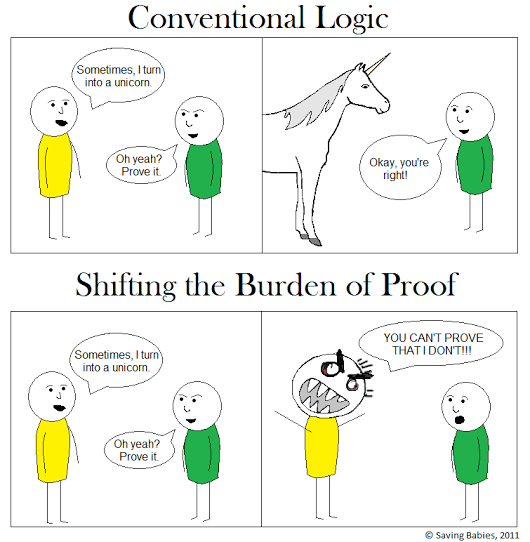
Asking for evidence that something doesn't exist or that it cannot be done is one of the most frequent logical fallacies
Source
Evolution before Darwin - Lamarckism
During the 18th and the first half of 19th century, the orthodox belief among the naturalists of that time was species fixity, which meant that species are unchanging, and that evolution of one species to a new one is not possible.
First naturalist who decided to question that hypothesis was Jean-Baptiste Lamarck (1744–1829).
.jpg)
Jean-Baptiste de Monet, chevalier de Lamarck (1744–1829)
Source
In his famous book Philosophie Zoologique (1809) he argued that species do change over time into new species, however, his view of evolution process was substantially different from Darwin's and also from modern concept of evolution.
According to Lamarck, there is an inherent potential of organisms to increase their complexity over time. He described an "internal force" that causes organisms to produce offspring slightly different from themselves, and when many changes had accumulated over many generations a new species would form.
Lamarck proposed two hypothesis to explain why species change:
- Organisms lose characteristics they do not require, or use, and develop characteristics that are useful. Lamarck thought that changes in the environment create new needs for organisms, and that those needs cause behavioral changes in organisms, which in the end lead to modifications in tissues and obtaining of new structures.
- Newly acquired characteristics are then transmitted to offspring, which is called inheritance of acquired traits or "soft inheritance".
The most famous example of Lamarck's hypothesis is of course neck elongation in giraffes. In order to grab leaves from high trees, giraffes must constantly stretch their neck during their life. By doing this, they strengthen and gradually lengthen their neck, and those giraffes with longer necks will have offspring with longer necks too.
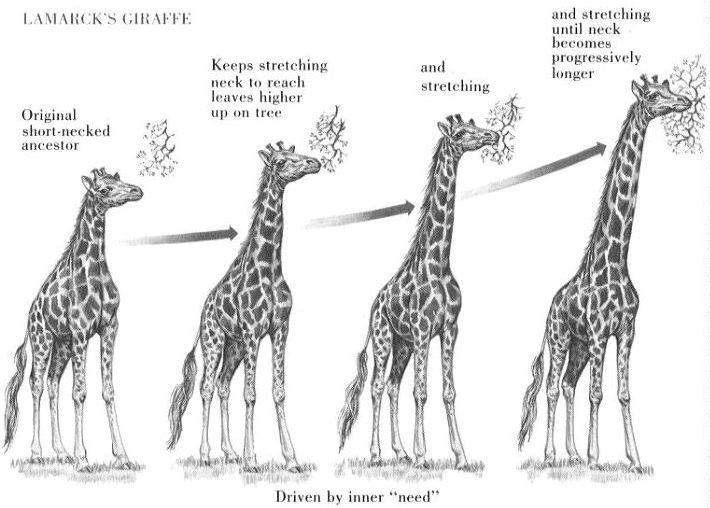
Lamarck's giraffe
Source
Although his views of evolution process were completely wrong (new traits cannot be developed because of the "need", and acquired traits cannot be inherited, which we will see in posts that follow), his "theory" of evolution is of great significance for development of evolution biology as we know it today, because he was the first who proposed a coherent theory explaining how organisms evolve, he postulated that species can evolve as well, and also was the first to consider the role of environment in the evolution process.
Darwin and Origin of species (1859)
The crucial event for development of Darwin's theory of evolution was by all means his Beagle voyage (1831–1836). During this trip, he collected bird specimens from different islands of Galápagos. After analyzing them, he noticed that his initial assumption that the Galápagos finches were all one species, was not true, and that all those different species probably evolved from common ancestral finch.
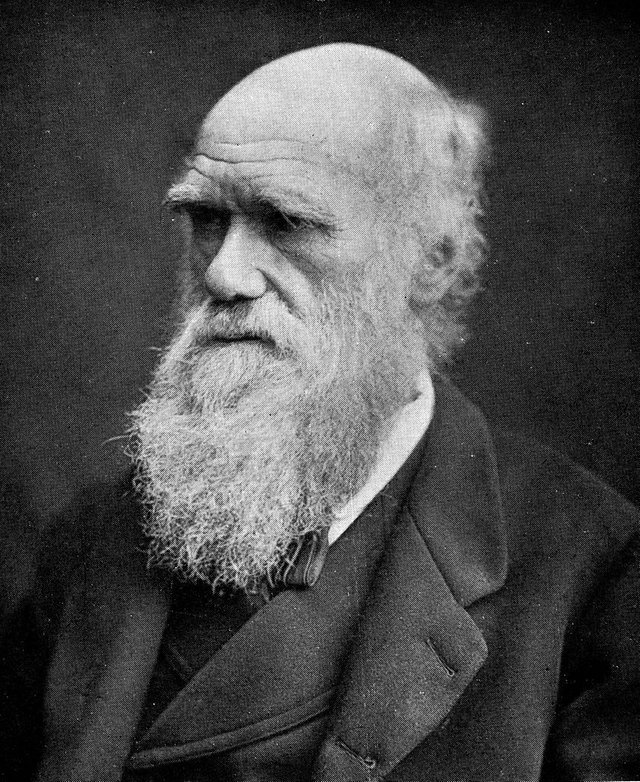
Charles Robert Darwin (1809 – 1882)
Source
He struggled to explain his observations, and even tried using Lamarck's "theory", but ended up rejecting it, because Lamarck's "theory" failed to explain an important fact - adaptation.
In his Origin of species (1859) Darwin came to his theory of evolution by using three facts and two deductions:
I FACT In nature, there is a tendency for exponential growth in population number. This potential of all species is contained within the fact that, at least during early phases of development, the number of offspring is always larger than number of parental generation.
II FACT Despite this tendency, majority of species maintain more or less constant number of individuals. Even in species which increase their number in time, real increase is always smaller than reproductive potential of that species.
Based on these two facts, Darwin made his I DEDUCTION:
Since more offspring is produced than it can survive in limited environmental conditions, competition for food, territory and other resources is inevitable.
III FACT In natural populations individual variability in all traits exists, and individuals may differ among themselves in ability to compete with one another.
Based on I DEDUCTION and III FACT, Darwin came to his II DEDUCTION - natural selection:
Since there is a competition for survival and since individuals of the same species are different among themselves, some of them will exhibit advantages in survival and reproduction. This means that such individuals will contribute to the next generation with more offspring than individuals that do not posses such advantageous traits. Under assumption that most of those advantageous traits are inherited, in following generations we may expect accumulation of such traits in population.
The following image nicely summarizes Darwin's concept of natural selection:
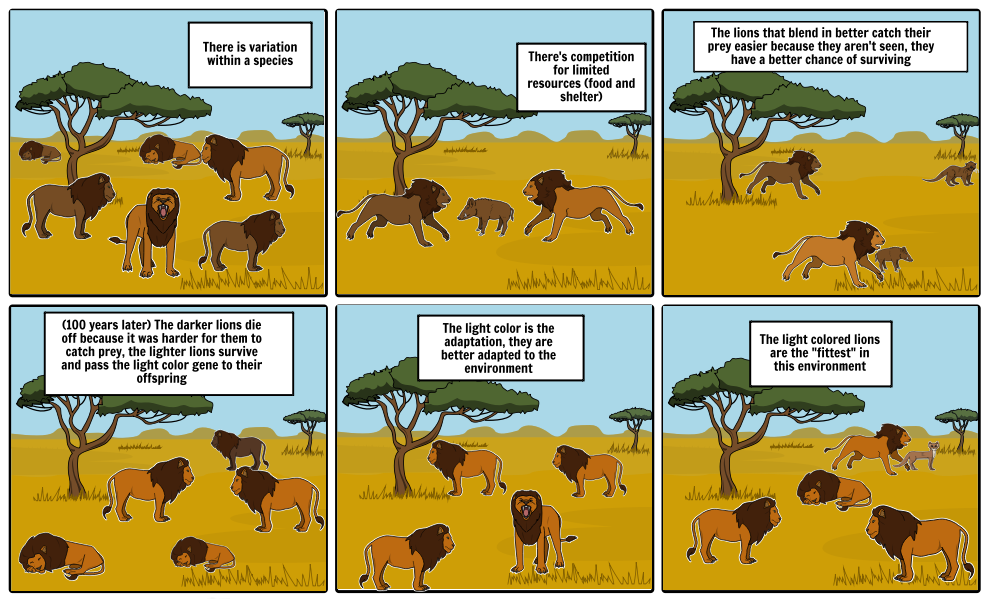
Not survival of the strongest, fastest, biggest, etc., but survival of those individuals who are best adapted to current environmental conditions!!!
Source
Darwin's theory of evolution is often considered to be the theory of natural selection, despite the fact that even Darwin himself insisted in his later editions of Origin of species that natural selection is not the only mechanism of evolution.
Just like all scientists do, Darwin also made several mistakes on the way to deduction of his theory.
Since he noticed the existence of differences among individuals of same population, he wanted to find out what is causing them. However, he had a small problem - in his time, blending inheritance was widely accepted mechanism of inheritance among naturalists. According to theory of blending inheritance, any characteristic is transmitted to offspring by mixing of "equal parts" of parental characteristic. This means that, if we cross red and white flower, the offspring will be pink flowers.
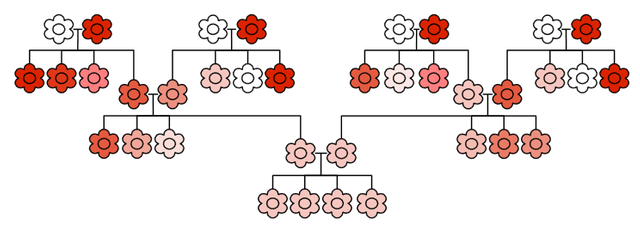
If inheritance worked by this principle, soon all variation between individuals would be lost!
Source
In his book The Variation of Animals and Plants under Domestication (1868) he explained his theory of pangenesis, by which tiny particles, called gemmules are produced by every part of the body, and by residing in gonads they contribute equally to the next generation. This theory implied that acquired traits would be inherited as well, which is nothing else but pure Lamarckism!
We should have in mind that, by using his theory of pangenesis, Darwin did not want to explain mechanisms of inheritance, but to provide reasonable explanation for small differences in individuals of the same population.
Another Darwin's misconception was that accumulation of changes within individuals of the same species that eventually yield a new species must be slow and gradual - Natura non facit saltum (Nature in its operations doesn't make leaps). This is why he eventually came to idea that natural selection can be the mechanism by which gradual changes would occur.
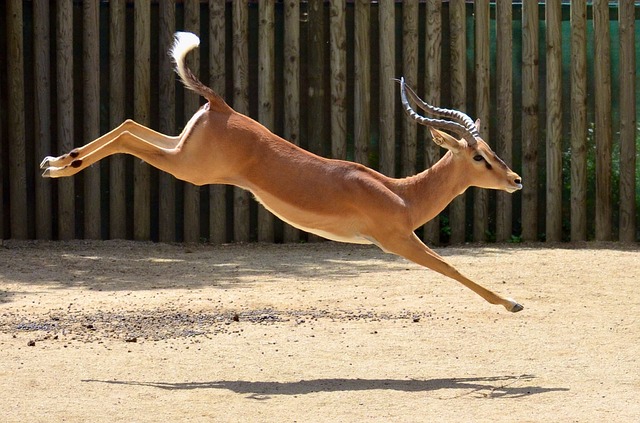
You sure, Darwin?
Reminder - yesterday was the 209. birthday of Charles Robert Darwin!
In the next post we'll talk about modern theory of evolution and mechanisms through which it works.
Until then, relax and keep steemSTEM! ;)
Literature
Darwin, evolution, & natural selection
Charles Darwin and the Origin of Life
NATURAL SELECTION, OR ADAPTATION TO NATURE
Pictures taken from pixabay.com unless otherwise stated
For more scientific-related content check steemSTEM. Follow me if you like my posts and want to read some more ;) If you have any thoughts/suggestions fell free to leave a comment!
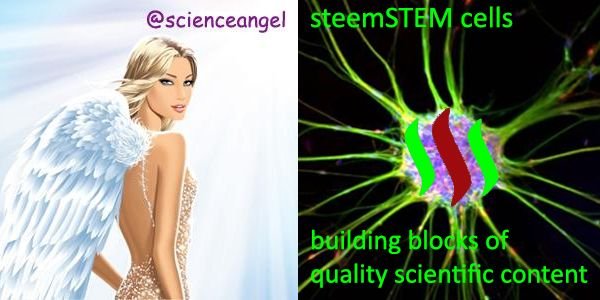

This is a test comment, notify @kryzsec on discord if there are any errors please.
Being A SteemStem Member
Downvoting a post can decrease pending rewards and make it less visible. Common reasons:
Submit
Well written blog post. Would you mind telling us a little about your background in science education?
Downvoting a post can decrease pending rewards and make it less visible. Common reasons:
Submit
Not at all - I have MSc degree in Molecular Biology, and PhD degree in Biology.
Downvoting a post can decrease pending rewards and make it less visible. Common reasons:
Submit
Great explanation of the fundamentals of evolution and the scientific process!
Downvoting a post can decrease pending rewards and make it less visible. Common reasons:
Submit
Outstanding post! What an in-depth explanation of both theories !
So, according to Lamarck's evolutionary reasoning, human beings would evolve to live in a post -cataclysm world . ( Thinking that this world will be destroyed by pollution and nuclear wars )That would be possible because we will be able to adapt to the new environmental conditions .
Downvoting a post can decrease pending rewards and make it less visible. Common reasons:
Submit
Thank you! According to both Lamarck's and Darwin's theory, we would be able to survive such cataclysm (if we are using that example), however the difference between those theories is in the mechanism that would provide us survival. According to Lamarck, new environment (pollution and nuclear wars, or whatever you can think of!) would cause new characteristics to develop in individuals, which would lead to survival of those individuals. According to Darwin's theory (and modern theory of evolution as well), there is already variation in those traits among individuals in our population - new environment would just select individuals with those traits, meaning that only individuals with advantageous traits for living in pollution (for example, some of us are able to stand more radiation without getting cancer or dying) would survive and reproduce. To sum up - environment cannot induce development of traits, it can only select them from already existing pool of traits. Hope that this is clearer now :)
Downvoting a post can decrease pending rewards and make it less visible. Common reasons:
Submit
Thanks for replying. Yes, I got a better picture of it.
Downvoting a post can decrease pending rewards and make it less visible. Common reasons:
Submit
Shout out my man Alfred Russel Wallace yo!
Downvoting a post can decrease pending rewards and make it less visible. Common reasons:
Submit
Agree, however mentioning all naturalists who contributed to the birth of evolution would require much more than one post :)
Downvoting a post can decrease pending rewards and make it less visible. Common reasons:
Submit
There's just something about pre-Darwinian evolutionary thought that I find fascinating to write about and always find myself returning to it from time to time. It's interesting to see the slow build up leading to Darwin and Wallace each managing to piece the puzzle together.
You might find "Evolution: The Remarkable History of a Scientific Theory" by Edward J. Larson a pretty good read on the subject as well.
Downvoting a post can decrease pending rewards and make it less visible. Common reasons:
Submit
Thank you very much for the literature recommendation, I'll check it out!
Downvoting a post can decrease pending rewards and make it less visible. Common reasons:
Submit
It's a great book, "The Evolutionists" by David J. Hoeveler is also quite good. :)
Downvoting a post can decrease pending rewards and make it less visible. Common reasons:
Submit
Nice one there, have always loved biology and it's relatives, aww, it didn't come like engineering did :( , it's quite an achievement you have made in the field and I am in anticipation to jump at that slightest form of knowledge shared, bring it on :)
Downvoting a post can decrease pending rewards and make it less visible. Common reasons:
Submit
Thank you very much for your support! :)
Downvoting a post can decrease pending rewards and make it less visible. Common reasons:
Submit
It's so great to read a good post about Biology around here! I'll follow you, I think I'll learn a lot of things from your posts.
Greetings from Venezuela!
Downvoting a post can decrease pending rewards and make it less visible. Common reasons:
Submit
Thank you very much @anasofiavu! Hope you'll find more interesting topics in my posts!
Downvoting a post can decrease pending rewards and make it less visible. Common reasons:
Submit
Whhhhooooa, great research. Weldone work. More knowledge 🆙🆙
Downvoting a post can decrease pending rewards and make it less visible. Common reasons:
Submit
This is one concept I find hard to accept in biology but this some topic - evolution is one of the reasons I so much love the subject.
Downvoting a post can decrease pending rewards and make it less visible. Common reasons:
Submit
Good write up 👍
Charles Robert Darwin man of honour🙌
Downvoting a post can decrease pending rewards and make it less visible. Common reasons:
Submit
very clear and good exposure, becomes the subject of discussion, Regard form aceh. @muhammadabi
Downvoting a post can decrease pending rewards and make it less visible. Common reasons:
Submit
Steem education. Best knowledge ever earn.
Downvoting a post can decrease pending rewards and make it less visible. Common reasons:
Submit
WOW that thing with the giraffe sounds just amazing.
Downvoting a post can decrease pending rewards and make it less visible. Common reasons:
Submit
I won't like since it is passed the reward period but I love the photo on this! 😂😂😂
Downvoting a post can decrease pending rewards and make it less visible. Common reasons:
Submit